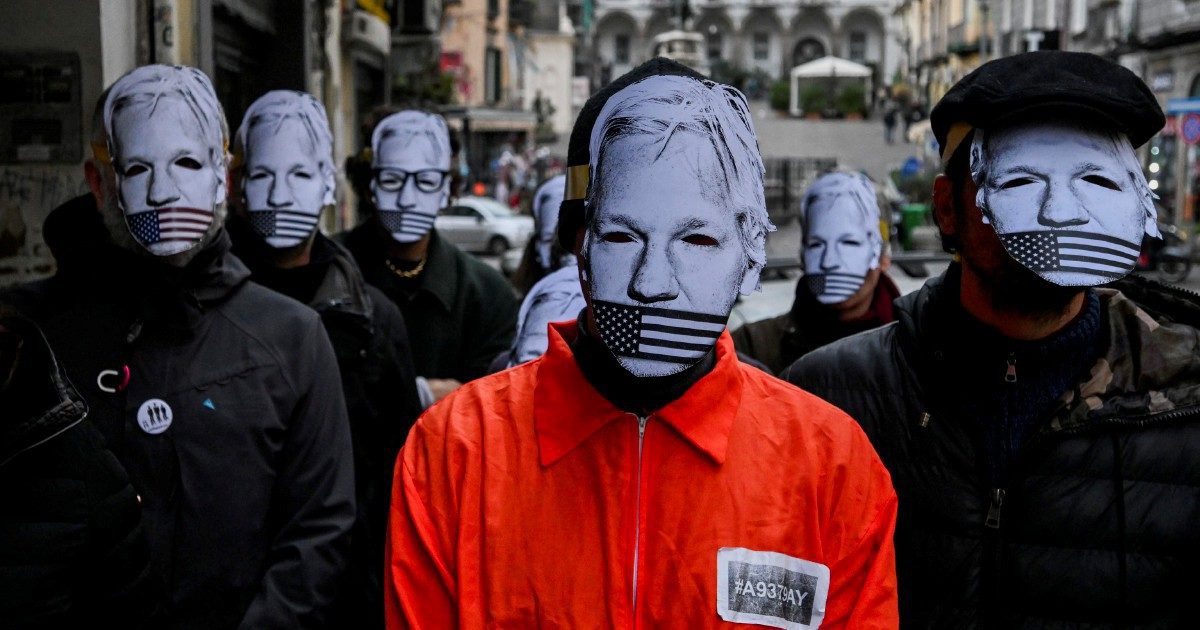Liberiamo Assange: le istituzioni italiane rompano il loro silenzio – FIRMA LA PETIZIONE SU IOSCELGO
Free Assange: A call to break the silence of the Italian institutions – SIGN OUR PETITION
***
It is the British public authority through which the United States acts in seeking Assange’s extradition. The Crown Prosecution Service (CPS), which prosecutes criminal cases in England and Wales, is a key authority when it comes to Julian Assange. There are so many doubts surrounding its decisions, however, that British Labour member of Parliament John McDonnell told Il Fatto Quotidiano: “It’s become clear that there must now be an independent inquiry into the role of the CPS in relation to the case of Julian Assange”.
The author of this article has been engaged in a FOIA battle to defend the right of the press to access the full documentation held by the Crown Prosecution Service on Julian Assange and WikiLeaks in order to factually reconstruct the case.
The founder of WikiLeaks has been in London since 2010, when he and WikiLeaks began publishing the U.S. classified documents for which he risks 175 years in prison. Less than four weeks after he began revealing the secret files on the Afghan war, Assange found himself in a Swedish criminal investigation for alleged rape, an investigation that remained in the preliminary stage from September 2010 to the end of 2016, without Swedish prosecutor Marianne Ny deciding to question and eventually charge him in the event of obtaining enough evidence to bring him to trial, or dropping the investigation if not. Assange was thus left in a limbo, neither charged nor cleared, while the “rapist” label remained attached to his name, alienating the public opinion whose support is one of the very few shields that people like him, who have revealed Pentagon, CIA and U.S. diplomacy secrets, can rely on.
No one understood why Swedish prosecutor Marianne Ny did not want to travel to London to question Julian Assange and determine whether to charge him or not. It was our FOIA investigation that allowed unearthing the reason: it was the British authorities at the Crown Prosecution Service, specifically lawyer Paul Close, who advised the Swedish prosecutors not to question Assange in London. By excluding the only legal strategy which could have brought to the Swedish case to a quick resolution, the British authorities at the CPS helped create the legal and diplomatic quagmire that has kept Julian Assange trapped in London since 2010. Why did they do this?
The Swedish case has been definitively closed, without Assange having ever been charged at all, yet the Crown Prosecution Service remains the key authority in his U.S. extradition case. To shed light on its role, it is crucial to obtain the full documentation held by the CPS, but in 2017 we discovered that Paul Close’s email account had been deleted by the Crown Prosecution Service. Since then, all our attempts to unearth the truth through a legal battle, in which we have been represented by top-notch FOIA specialist Estelle Dehon of Cornerstone Barrister, has been thwarted by the Crown Prosecution Service.
Now that Julian Assange’s very life depends on the decision of his extradition to the United States, and the Crown Prosecution Service is assisting the U.S. authorities in extraditing a journalist as if he were a criminal like any other, shedding light on the Crown Prosecution Service’s role in the Assange case is more urgent than ever.

